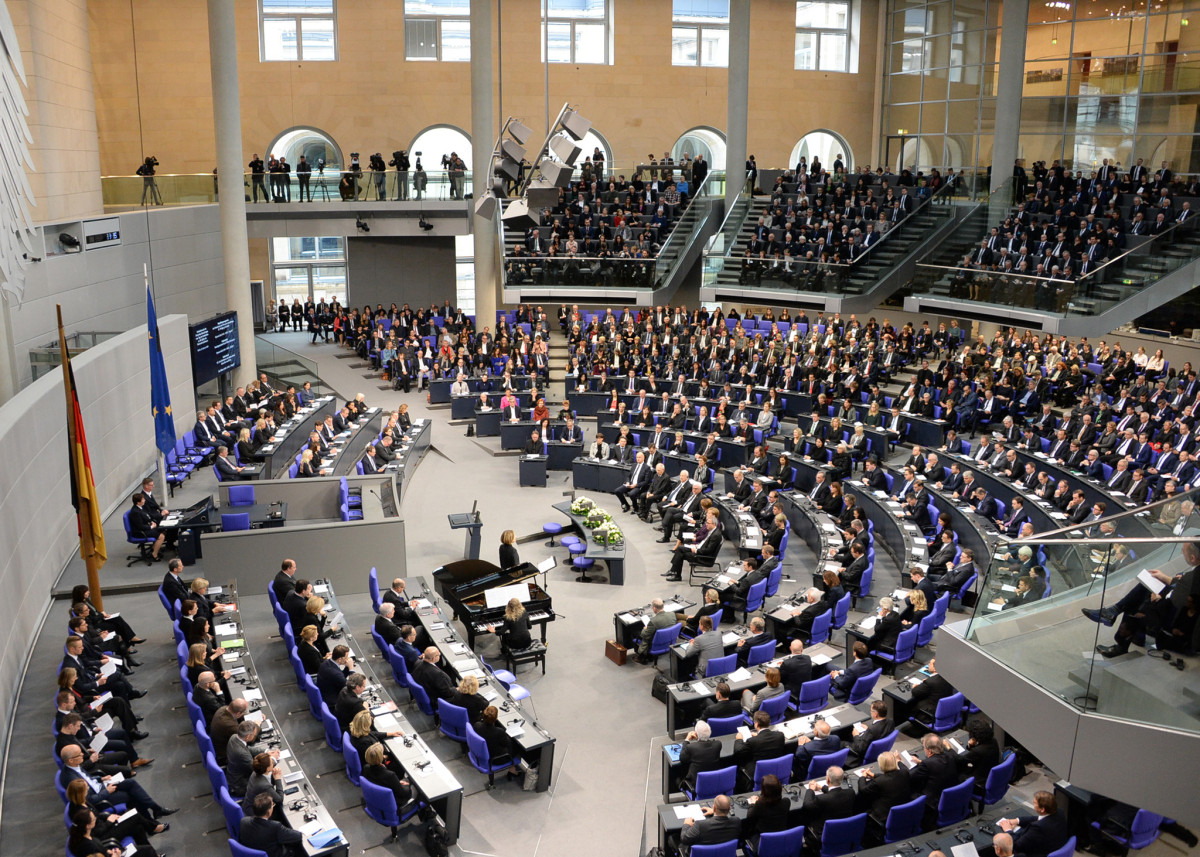German climate reform under legal attack from NGOs, opposition ahead of parliament vote
One day ahead of a scheduled parliamentary vote on a highly controversial reform of Germany’s climate law, the government's envisaged course of action is facing fierce criticism and legal challenges from different sides: Environmental organisations have warned that the planned changes will violate not only a landmark climate ruling by the country’s constitutional court, but also a recent verdict by the European human rights court. The planned weakening of individual ministries’ responsibilities for emission reductions and many other parts of the reform will delay rapid and effective climate action, thus violating the principle of intergenerational justice and human rights, said Greenpeace, Environmental Action Germany (DUH), Germanwatch, youth group Fridays for Future, and the Solar Energy Support Association Germany at a joint press conference. Several prominent climate lawyers, who have already successfully enforced climate protection before Germany’s constitutional court, also described the changes as unconstitutional. The NGOs said they would take legal action against the changes and launched an urgent call on parliamentarians to “listen to their conscience” and vote against the changes.
After months of delay, lawmakers from Germany's coalition government agreed to the reform earlier this month. According to the planned changes, the government must only reach its overall climate targets in the future, and no longer individual targets for individual economic sectors, such as transport, buildings or industry. Proponents have argued the reform ensures that emissions can be reduced where it is most efficient to do so.
"Structural procrastination"
Lawyer Remo Klinger called the reforms “structural procrastination.” He said political blockades will be inevitable, because future policies would depend on a yet-to-be-established research consortium that could be blocked by a single ministry. “The reform will make achieving climate targets much harder, even if the overall targets remain untouched,” Klinger said. “The law lacks a mechanism to make up for shortfalls,” he added. “If the reforms are implemented, the government would be forced to implement effective steps to cut emissions only as late as 2030.”
Klinger and fellow lawyer Roda Verheyen, who was also involved in successful previous climate litigation, both said the reform would therefore violate the principle of intergenerational justice by postponing effective action far into the future. In a landmark ruling, Germany’s highest court said in 2021 that the government must not postpone effective climate action because a delay would require much more drastic action later on, which would severely restrict future generations’ freedoms. The lawyers said the reform likely also breached a recent judgement by the European Court of Human Rights (ECHR), which found that the Swiss government had violated human rights by failing to effectively mitigate the effects of climate change.
Temporary injunction poses additional threat
The German parliament (Bundestag) is scheduled to vote on the reform on Friday (26 April). However, it remains unclear whether a vote could be held as planned: Conservative lawmaker Thomas Heilmann (CDU) filed an application for a temporary injunction with Germany’s constitutional court. He argued the legislative process was rushed, not giving parliamentarians enough time for deliberations, and that the reform would weaken climate protection. Using similar arguments, Heilmann had successfully stopped a vote on Germany’s controversial heating law before parliament’s summer recess with an injunction. Eventually, the law had to be agreed after the summer break.
Germany's climate action law stipulates that the country must reach greenhouse gas neutrality by 2045 and meet interim emissions reduction targets: 65 percent by 2030 and 88 percent by 2040 in comparison to 1990 levels. Until 2030, Germany currently has annual emission limits for individual economic sectors, in addition to the overall targets. With the reform, an overshoot in a specific sector would no longer mean that the responsible ministry has to come up with an immediate programme of climate measures to put the sector back on track. Germany's transport ministry, which is run by the pro-business Free Democrats (FDP), would likely be among the administrations most affected if the reform is not implemented. Emissions in the transport sector have been reduced much less than in other sectors in the past three decades, meaning decisive steps would have to be taken to make the sector comply individually. Energy industry association BDEW had also criticised the weakening of sector limits, warning it would not help the climate as it takes the pressure off individual sectors to step up their efforts.


